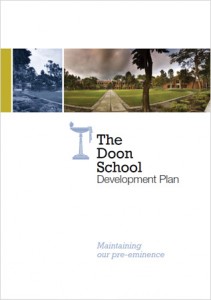Why fund raise?

Introduction
Our School is a not-for-profit institution that operates without government funding or corporate sponsorship. Tuition fees from students only cover operating costs; long-term development costs are not charged to current students. We offer needs-based scholarships and are creating an endowment fund to support needs-blind admissions. Currently, only 15% to 20% of our students receive financial aid, ranging from 20% to 120% of tuition. We aim to accelerate our financial aid capacity through endowments and annuities to meet this goal.
We award means-tested grants to students who qualify through entrance exams and interviews. Successful candidates’ parents must declare their income, and the School conducts third-party verifications before awarding scholarships. This process applies equally to all students, including Old Boys’ sons, children of Armed Forces and Civil Services members, and first-generation learners.
Donations also contribute to campus development. During the Covid lockdown, we swiftly developed the Sports Complex and the BML Munjal Auditorium, ensuring all staff retained their salaries throughout the pandemic. This was a rare achievement, as many educational institutions struggled to survive during this period. Our success was made possible by the generosity of Old Boys, trusts, foundations, and family offices. Many donors attribute their success to their formative years at our School and express gratitude through generous contributions.
The School’s evolution includes a structured mechanism for managing needs, overseen by the Board of Governors and various committees:
- The Chandbagh Development Committee oversees infrastructure projects.
- The Diversity Committee and Scholarships Committee work together to enhance student body diversity, reflecting the broader diversity of our country and the world.
- The Fund Raising Committee is responsible for securing the necessary funds for the School’s development.
- The Finance Committee maintains fiscal discipline, with Grant Thornton as our Internal Auditors and Deloitte as Statutory Auditors. The Investment Committee ensures optimal use of endowed donations.
Endowments link the past, present, and future, enabling the School to make long-term commitments with the assurance of ongoing resources.
Colleges and schools around the world depend on the generosity of the stakeholders to retain their pre-eminence. Most donations are, in fact, modest, but they are vital as the aggregation of a large number of these can outstrip much bigger donations. Small and regular giving also helps stakeholders connect with School in a meaningful way for the benefit of current and future generations of DOSCOS. Large donations are, of course, always welcome as they help to give a substantial kick-start to any major capital campaign.
The aim of The Doon School Development Plan 2011-2020 is to:
- Enlarge the number of scholarships in order to make a Doon School education affordable to more of India’s best and brightest boys in search of an outstanding all-round education.
- Establish a permanent endowment of significance
- Increase funding substantially for high-priority capital projects, e.g., more staff housing, new teaching infrastructure and science facilities, a sports complex and a new theatre
We welcome contributions for the development of The Doon School. All payments must be made to “The Indian Public Schools Society”.
The School Fund Raising Committee comprises of the following members:
Mr. Anoop Singh Bishnoi – Chairman
Mr. Arjun Malhotra
Mr. Pashupati K. Advani
Mr. Arun Khanna
Mr. Arun Sinha
Mr. Arjun Sahay
Mr. Amit Sawhney
Mr. Sanjiv Sharma
Mr. Gautam Thadani
Mr. Vikram Malhotra
Mr. Rahul Kohli
Mr. Sanjay Labroo
Mr. Vinayak Bahuguna
Mr. Gurmeet Singh
Mr. Rajat Banerji
Mr. Jaswinder Singh Bull
Mr. Nauhar Shamshere Rana
Mr. D. Saradhi Rajan
Mr. Sameer Dhingra
Mr. Chetan Roy
Mr. Ajay Mehta
Mr. Sunjay Kapur
Mr. Deepak Thakran
Mr. Tarun Sawhney
Mr. Abhishek Mishra
Mr. Ravi Singhee
Mr. Arjun Sahgal
Mr. Bharat Singh
Mr. Akashdeep Singh Puri
Mr. Jaivir Singh
Mr. Rishi P. Mehra
Mr. Junaid Altaf
Mr. Samay Swamy Mangalagiri
Dr. Jagpreet Singh – Headmaster
Mr. Arjun Bartwal
Fund Raising Sub-Committee – Legacy
Mr. Ravi Katari
Mr. Lalit Nirula

 ANNOUNCEMENT
ANNOUNCEMENT
